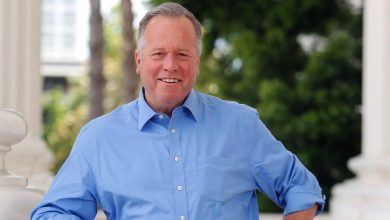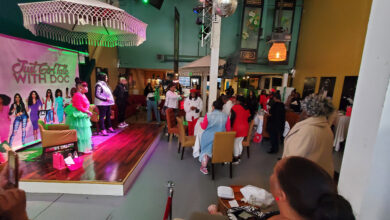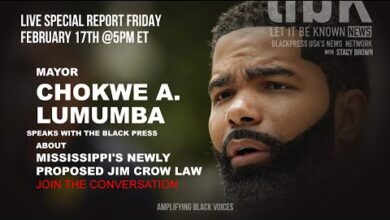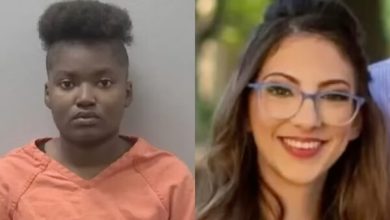“Good” Cops Versus “Bad” Cops: The Betrayal of Silence
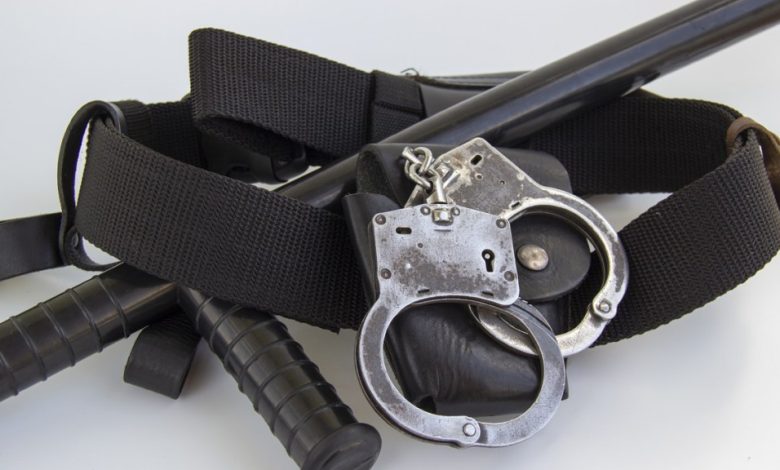

Listen and listen very carefully!
What is the difference between a “good” cop and a “bad” cop, if both cops are silent about the police brutality that continues to happen within their own police force?
America has a major problem with “bad” cops, and we must be honest about how the actions of those “bad” cops are endangering everyone—both civilians and their fellow “good” cops.
We constantly hear the phrase that rogue cops who commit these egregious acts are just “a few bad apples” acting outside the established rules and the oath taken by members of law enforcement, but we must examine this a lot further.
Coming off the heels of celebrating his life and legacy, Dr. Martin Luther King Jr. once said, “There comes a time when silence is betrayal.”
Here are some key questions that need to be answered.
If there is a police force of 1,000 cops, and at least 15 of those cops have a history of committing heinous acts that have been swept under the rug or ignored by the other “good” cops in the force, then what must we say about the silence of the “good” cops? Should the deafening silence of these “good” cops who have taken an oath to “protect and serve” the community be considered a betrayal of the trust that the citizens expect from law enforcement officials? Does the silence of the “good” cops equate to them being complicit with the unacceptable behavior of the “bad” cops and their actions? Should the “good” cops speak up and advocate for the victims of police brutality from within their respective police force and demand accountability of their colleagues? Should “good” cops proactively call out the bad behavior of the “bad” cops in their police force? Should “good” cops ensure that the truth is told on all official police reports and tell the full truth when they are questioned by Internal Affairs about what really happened during any incidents?
These are just some of the questions that warrant real answers because the issue of police brutality in the African American community has been a significant crisis and matter of concern for decades. Furthermore, if you look at the number of Black people who have been killed by members of law enforcement just over the past two years, you must acknowledge that this is a widespread epidemic that continues to negatively impact the Black community.
The recent death of 29-year-old Tyre Nichols at the hands of five indicted Memphis police officers, along with other first-responders on January 7th, should not have happened.
Tyre Nichols should still be alive today, and his death should not have occurred, just like the other senseless attacks and killings of mostly innocent and unarmed Black people that have occurred due to the negligence and over-the-top actions of rogue members of law enforcement.

To provide more context to what happened to Tyre Nichols on that fateful night, Memphis police officers did a routine traffic stop on him for an alleged reckless driving charge. It was then that these overly aggressive officers are seen on video threatening to physically harm Nichols, to which he ran away and was eventually chased down by officers before all hell broke loose. Nichols was tased multiple times, had mace sprayed in his eyes, was severely beaten until he was unconscious, then held up by these officers while still unconscious and viciously beaten with a baton, while being kicked, stomped, and tased once again before the officers stopped their brutal assault. Nichols was unattended to, was neglected, and was sprawled out on the ground until paramedics arrived well over twenty minutes later. Nichols informed the paramedics that he could not breathe due to shortness of breath, to which he was transported to the hospital in critical condition. He died three days later on January 10th.
Here is the extremely disturbing part of the story if the video footage wasn’t enough.
The Memphis Police Department could not produce any evidence that revealed that Nichols committed any traffic violations, and a member of law enforcement lied in the police report about what exactly occurred at the scene of the incident that night. The police report that was released shows the reporting officer falsely claiming that Nichols was speeding prior to being stopped, that he was acting irate, that he refused to comply with officer’s instructions, that he tried to pick a fight with the officers, and that he tried to reach for one of the officer’s guns.
All lies!
This is even more troubling, especially after viewing the merciless beating of Nichols that was caught on video for the entire world to see.
Something must be done to address this police brutality epidemic that continues to spiral out of control in communities of color and against Black people.
Elected officials, legislators, police unions, civil rights organizations, activists, and the Supreme Court, must come together to collectively acknowledge and address the root cause of these “bad” actors who are finding their way into law enforcement and committing these acts of evil.
Regardless of whether the number of “bad” cops is lower than the number of overall “good” cops wearing the badge and uniform, those “bad” cops have and continue to do a lot more damage than they should be allowed to.
There is an old popular French saying, “The more things change, the more they stay the same.”
Just when we thought the George Floyd incident brought about much-needed dialogue, much-needed attention, and much-needed change in America, it is clear that his tragic death did not do enough, because issues of blatant police brutality continue to plague the Black community.
Black people have been consistent and resilient when it comes to lodging complaints, reporting incidents, and sharing the realities of being racially profiled and targeted by law enforcement officials. Again, it is not just an argument about who is a “bad” cop versus a “good” cop, but whether there will be established accountability mechanisms to ensure this never happens again.
As the Forward Times has consistently written before, the only way America can prove that it is serious about acknowledging and addressing this police brutality epidemic is if certain measures are taken to overhaul the current system, because it is not changing without making substantive changes from within.
The nationwide trend of killing Black people and paying off Black families with taxpayer money for the reckless and cold-hearted actions of a rogue member of law enforcement must cease. If these law enforcement officials can assault and kill Black people with immunity, and nothing to lose, a mixed message is being sent in America that “bad” cops can get away with committing crimes that regular citizens get held accountable for when they commit similar crimes.
Some swift and specific changes should involve:
- Passing legislation to ensure every member of law enforcement is required to carry some sort of professional liability insurance—similar to what doctors, lawyers, real estate brokers, etc. are required to have—so that cities, taxpayers, and others don’t have to be on the hook and shoulder the burden for the blatant actions and police misconduct of “bad” cops, especially when it involves senseless and fatal incidents of police brutality.
- Having the Supreme Court overturn the qualified immunity loophole that many law enforcement officials are able to hide behind in the courts as the “bad” cops continue to commit these acts of police brutality with no fear of accountability.
- Making select employment infractions and complaints, such as police brutality and other criminal acts, open to the public through complete transparency.
- Creating a nationwide portal that lists all law enforcement officials, presently employed or not, for serious infractions, such as police brutality and other criminal acts.
- Putting more emphasis on community policing as an effective way of turning the tide of animosity and discord between the African American community and law enforcement officials who are sworn to protect and serve the Black community.
The devil is in the details, so it is incumbent on all parties involved to agree on the need to implement these suggested changes and then figure out how to definitively make it happen.
Lastly, the issue of addressing police brutality, which has led to the murders of Black people in this country, can’t just be an issue raised, argued, and advocated for by Black people solely. This is a civil rights issue that all American citizens should be concerned about.
The race of the perpetrators who are wearing the badge and uniform should not trump what matters most—which is that Black people are statistically racially profiled, assaulted, and even killed, for no justifiable reason whatsoever, way more than any other group of people in this country. It takes everybody to address these issues. All Americans should refuse to turn a blind eye to this important issue—an issue that still negatively impacts the African American community and has been plaguing Black people in this country for many decades.
Historically, African Americans have had the support of a remnant of White people and people of other races, who got involved with the Black struggle to help bring about change.
White abolitionists, like John Brown, believed he had a personal responsibility to overturn the barbaric institution of slavery during the mid-1850s. Brown, along with many other White, concerned American abolitionists, considered it their personal responsibility to rail against the vile system of slavery and bring about change by any means necessary—even putting their lives on the line, which John Brown did.
It is incumbent that anyone who is not an African American in this country take up the mantle that White abolitionists like John Brown carried, and make it their personal responsibility to speak out against police brutality, and the unjust systems that are in place today that disparately and negatively impact Black people in the U.S., more than any other cultural group.
Even with the implementation of these suggested changes, we can’t be naïve to think that there will not still be racist, violent, and rogue individuals in law enforcement. However, there must be a zero-tolerance on this type of behavior that is resoundingly spoken against by everyone in this country, regardless of race, and whether you wear a police badge and uniform, or not.
The Forward Times will continue to take a leading role in helping address police brutality and help bridge the gap between law enforcement officials and the Black community, but there must be a commitment by all to help bring about the change the African American community has been demanding for decades. Time will tell!
The post “Good” Cops Versus “Bad” Cops: The Betrayal of Silence appeared first on Houston Forward Times.

